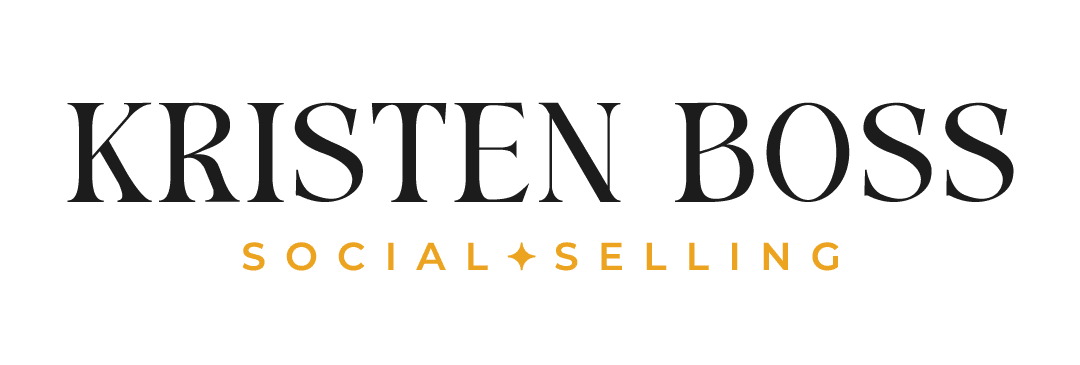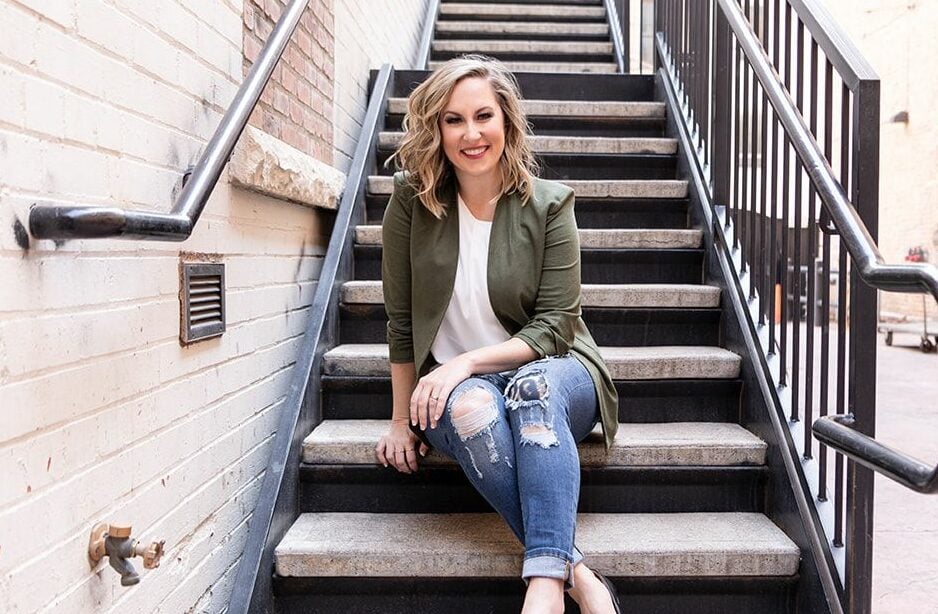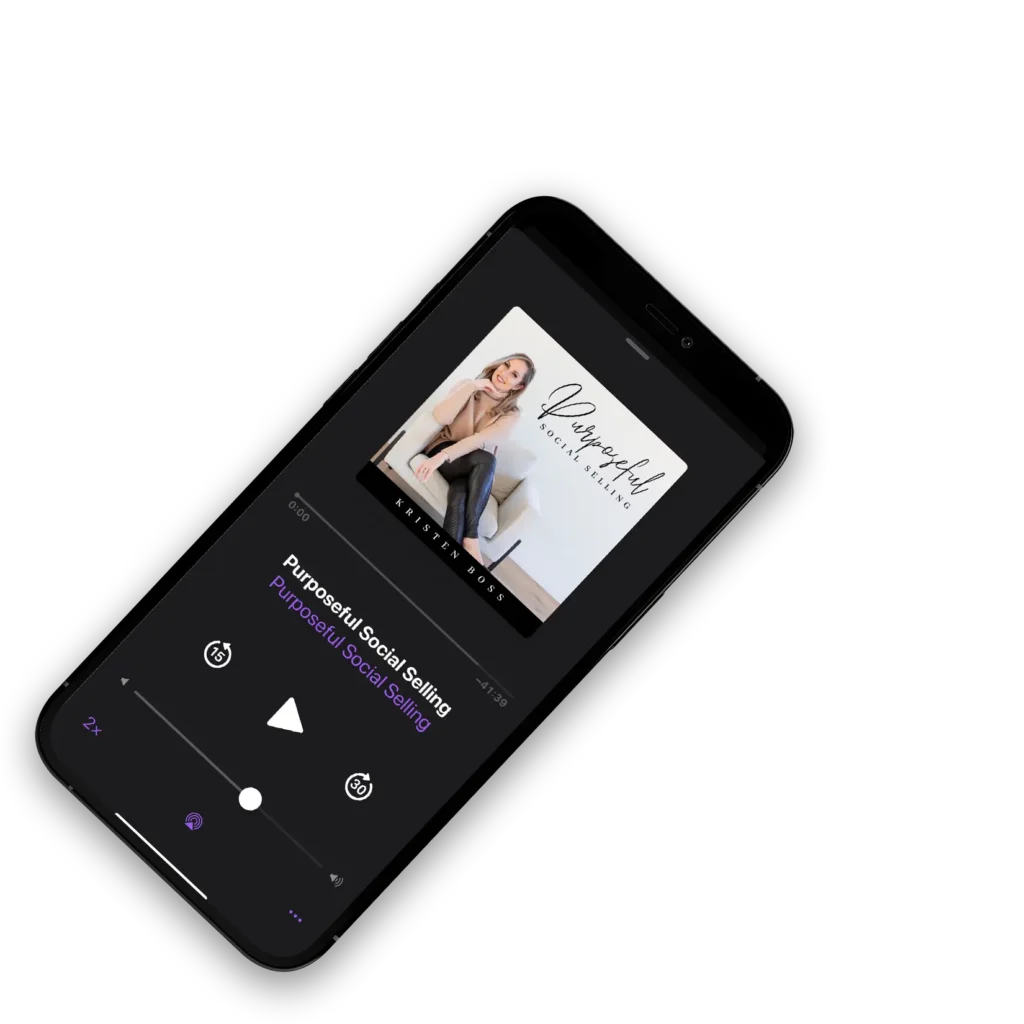What was your goal when you first decided to jump into network marketing? Did you think you’d be making 6 figures in your first 3 months? That you’d have no problem recruiting with such massive success under your belt? Or maybe you thought that you’d win a bunch of trips or whatever prizes your company gives away for being just so amazingly awesome? While all of this may technically be possible with this business model, it’s more often the exception and not the rule.
And Kristen says that’s A-OK!
While you might get caught up in the flash and glitz of what is promised by getting your hustle on, it’s often not a sustainable pace to keep you in this business long term. If you’re looking to build something for yourself and your family to last for years, this episode is just for you!
Listen is as Kristen drops some tough love about:
- An explanation of why burnout happens (and how to avoid it!)
- Why setting and actively pursuing goals in your business can keep you committed
- The importance of budgeting for setbacks and failures in order to avoid burnout
- Choosing sustainability over speed
- The 3 phases of effort to pay ratio and why you must respect the phase you’re in
In order to remain in this business model for years (and decades) to come, you must pick a pace that is sustainable for you and your loved ones. You started this journey to breathe life into your work. Not the other way around. It’s never too late to start over and build something to last.
Thanks for listening! Do you have a question about network marketing? Kristen can help! Drop your question here, and she just might answer it live on the podcast: https://kristenboss.com/question
Connect with Kristen:
Do you have a business full of customers and almost no builders? You’re in need of a reboot! Learn the three skills you can learn that will completely change your recruitment game. Check it out here.
If you’re ready to learn the simple process of running your social selling business online, you have to check out Kristen’s live group coaching program! The Social Selling Academy: www.thesocialsellingacademy.com
Interested in Kristen’s exclusive mastermind for six-figure earners in the network marketing industry? Get all the details and join the waitlist here.
Transcript for Episode #69: Built to Last
Kristen Boss (00:00): Welcome to Purposeful Social Selling with Kristen Boss. I’m your host, Kristen Boss. I’m a mindset and business coach with more than 15 years experience in both the product and service based industry. I believe that social selling is the best business model for people wanting to make an impact while they make serious income. This is the podcast for the social seller, who is tired of feeling inauthentic in their business and desires to find a more purposeful and profitable way of growing their business. In today’s social media landscape. In this podcast, you will learn what it takes to grow a sustainable business through impactful and social marketing. It’s time to ditch the hustle and lead from the heart. Let me show you the new way.
Kristen Boss (00:48): Hey bosses, welcome to another week of the podcast. Super excited for this episode because we’re coming up on the last 90 days of the year. And I want you to check in with yourself. What’s really interesting right now is a lot of companies are having their huge conventions right now, and I can smell it in the air. Y’all are pumped. Y’all are excited. There’s new product releases everywhere. Y’all are excited about your comp plans and you all are full of belief. It’s almost like they pump belief and inspiration through the through the air shops at your convention. So what I want to do is I want to bring you back and I want to center you because right now, everything you were thinking, especially if you just got back from a convention or a huge event, is you’re really excited and you feel really motivated and you feel really inspired and you’re ready to hit the ground running.
Kristen Boss (01:42): Maybe you’ve made some new promises to yourself, and I want to remind you, as I famously, tell my students to calm your butt down. And I’m going to tell you why. If you have positioned yourself to constantly hype yourself up to this frenzied state of, you know, chaos, like I’m gonna call it like a blur of activity out of like complete excitement. I mean, have you ever seen a toddler on Christmas morning? Like there’s wrapping paper everywhere. It looks like a complete I dunno like destruction zone, right? They just go crazy because they cannot contain their excitement. But what’s really important for you right now is I want to ask you to contain your excitement. And I want you to be thinking about how can you fuel this? How can you use this and create a sustainable pace that you set from here until 12 months from now this time next year?
Kristen Boss (02:44): So what I want to talk about today is building a mindset that is built to last in this industry. And not last for a year or two years, I’m talking about really getting to the place where you have built yourself up, you know, residual income and lifetime earnings, because that is the lure of this business model or going into business for yourself as all the possibility that is available for you. And so most people come into this business model because they love the flexibility and they love the idea of residual income that comes later. But here’s what I want to offer you. Residual income is for people that have an endurance mindset, the mindset I’m going to talk to about today. Now there are some exceptions to the rule. There are some people who worked themselves to death in a very short period of time in order to, you know, hit that top rank in the company and position themselves for residual income.
Kristen Boss (03:48): But you have to ask, like, if I do that, what is the cost to me? What is the cost to my family, to my body, to mental health, to relationships, am I willing to sacrifice the health and wellbeing of everything else in my life just to get somewhere faster. And it’s going to be very tempting for you to constantly believe that faster is better. And my philosophy is always about sustainability with this business. And I’ve said this time and time again, there is a reason why, you know, 50% of network marketers who joined in their first year quit. It’s not because the model doesn’t work it’s often because people don’t know how to work the model in a way that works for them, or they end up working themselves to death. They burn out and they weren’t able to get their business to the place where their efforts were, you know, their efforts or should I say the results didn’t outweigh their efforts as far as pay most people.
Kristen Boss (04:57): And I just posted about this on my Instagram. Most people end up burning out in the first phase of this business, where your efforts far outweigh your pay in the beginning, and then phase two, your efforts and your pay match, and then phase three, your pay far outweighs your efforts. But most people, they burn themselves out because they expected to get to phase three faster than they thought. And they’re still in phase one and they have no gas left in the tank. They’re exhausted. Their personal life is a mess. And that’s when they decide this isn’t worth it only because they did not have a mindset that was built for endurance and sustainability. So I’m going to be talking to the person that is in this for the long run. If you want a really fast sprint to the top and burn out your adrenals and sacrifice whatever relationships and your health and your wellbeing, you’re welcome to do that.
Kristen Boss (05:57): I just preach a different philosophy because I really believe that this is an amazing business model. When you take a very sustainable approach. And I believe when we have more people with a sustainable approach, we’re going to see those numbers of how many people leave the industry in their first year. We’re really going to see those numbers start to turn around because people are finally going to really learn how to work this business model in a way that serves them in the short run and the long run, you have to be thinking of both. Okay. So I want to talk today specifically about when you’re not having an endurance mindset and what that looks like and why that inevitably causes burnout. I talk about burnout a lot. I get tons of messages all the time. People telling me how burnt out they are, how exhausted they are, how emotionally miserable and spent they are.
Kristen Boss (06:55): And you know, I don’t care who you are, but no dream is worth that type of burnout where everything in your personal life is falling apart. Because remember you joined this business to enrich your personal life, not to Rob it, not to make it harder, but I see a lot of people doing that. Like they give up, it’s like they put their life on hold being like, okay, I’m just going to put this on hold for a little bit. And I’m going to bust my butt for the next year or two years. I’m gonna do whatever it takes. And then when I get there, then I’m going to come back and focus on my personal life and focus on these things. And then I’m going to make memories. And then if then it’s going to be great. But a lot of times there’s so much damage that they go back to that.
Kristen Boss (07:42): Now they’re like, I didn’t anticipate I was going to have to repair so much that it would be so painful. So I’ve said this many times, but what good is standing on a stage? If no one, if the people you love most aren’t in the stands, applauding you and thrilled for you. Now, there are going to be people that aren’t thrilled when you’re standing on the stage with a paycheck, there are going to be people who think like you’re full of yourself. And you know, you think you’re better than everybody. Like, I’m not talking about those people. I’m talking about the people who you were thinking of when you said yes to this business opportunity. I’m talking about your little people who look at you every day and you said, I chose this business so I can be more present for my children. But my question for you is, are you present for your children now while you’re building your business or are you waiting to get your business to a certain place?
Kristen Boss (08:35): So then you can be more present. I just want you to notice if you’re deferring and delaying these things, being like, well, when I get there, then I can focus on those things. That is a mindset that is inevitably going to lead to burnout. And the very people you joined this business for will be the very reason why you give up the business. You’ll say, I just, I need to focus on my family. Again. I need to focus on my kids. I need to focus back on what matters. I need to focus on my marriage. But if those things were a priority in the beginning from you setting the sustainable pace, you wouldn’t have to quit and go back and focus on those things. You’re going to have to focus on them at some point. And it’s so much better to keep them in the forefront where you’re building a sustainable business than putting them on the back burner saying, I’m doing this for you.
Kristen Boss (09:24): I’m doing this for you. And then having to quit because now there’s pain and now there’s hurt. And I realized, this is a heavy topic. And I say this with a lot of, of empathy and compassion, and I want this to not be the norm anymore. And unfortunately this is far more common than you think. And this is why I teach the philosophy I do because I know of too many marriages and friendships and families that have been hurt from this unsustainable burnt burnout, you know, faster is better mindset. And we’ve kind of been conditioned to believe that in the entrepreneurial space, you know, the fastest wins the race, but listen, you’re only competing against yourself in this business. And we forget that because you look side to side and you see people, you know, getting company recognition and you see your peers being recognized.
Kristen Boss (10:23): And this is even in the coaching space. Like there are stages in the coaching space, depending on what circles you’re in, whether it’s, you know, click funnels or, you know, with life coaching or whatever it is like, there’s always going to be someone on stage getting an award. There’s always going to be somebody that’s further ahead than you. And you can use that to inspire you. Or you can use that to kind of weaponize against yourself of why you should be further along, why you should be going faster, why you should be catching up, but listen, you really are only in this competing against yourself, nobody else. But as soon as you start looking at what others are doing, it becomes a competition. It becomes comparison. Last I checked, like there can be healthy competition, but most of the time, I think in the entrepreneurial space, I don’t think it serves us really well.
Kristen Boss (11:16): Now. I love collaboration. I love lifting up fellow coaches. I love supporting my peers. I love seeing them win. And you know, are you there? Do you love seeing other people win? Or do you make them winning or achieving means something about you that makes you want to speed up, go faster, work harder, sweat, more sacrifice more. Because if that’s the story you’re telling yourself, you’re setting yourself up for burnout. So I want to talk about why burnout happens and maybe like, and I think there’s levels of burnout. I think there’s like a minor burnout where maybe you feel like, oh man, I need to take a weekend. I need a week. I just need to get focused and I need to recenter. And then I’m talking about like the hardcore burnout, where like, you feel apathy, you’re checked out. You even feel resentment for your business.
Kristen Boss (12:16): Like, why did I ever do this to begin with? And you forget why you started. It starts to feel like this horrible chore, like, oh, I have to do it. That’s how burnout feels. Burnout feels like punishment. It feels awful. It has you hiding and not wanting to show up for anybody. Has you regretting it? And that almost has you feel enslaved to your business. Like I have to keep showing up. Otherwise it’s all going to go away. And who wants to work from that place? How can we serve from that place? When we’re thinking I got to show up to work today. So it doesn’t all go away, but I’m going to serve. I’m going to put on my little smiley face and go on social media and I’m going to serve. Now. People can sense that energy people can sense when we’re out for ourselves because we’re from a place of burnout or exhaustion, or even from scarcity.
Kristen Boss (13:11): Like I have to stay here otherwise, you know, my family’s going to go hungry. So why does burnout happen? You ready? Burnout happens when people oversell themselves on the goal, which I love, Hey, oversell yourself on the goal. Be so in love with your goal, be so committed to it that nothing will get in your way of the goal that you were going to stay committed to your belief in the goal. No matter what people could send you a horrible message and say, you’re the most garbage person on the planet. And it will not deter your belief in where you are going. I love that. Overselling yourself on the goal. Why is this goal important? Why is it important that I show up and do this on really hard days? Because on easy days, anybody can show up for their goals on an easy day, but listen, 90% of the time, it’s not easy.
Kristen Boss (14:01): It’s hard. Your brain offers thoughts. Like maybe not today. It’s hard. No one’s paying attention. No one’s listening. I’ve already tapped out my warm market. My Instagram’s on it’s being seen. My engagement is low. Like, listen, those are thoughts you’re going to have every day. So you have to be so sold on your goal that you show up despite thinking those things. So burnout happens when people oversell themselves on the goal, that part isn’t the problem. But then the undersell themselves on the length of time and the measure of effort that will be required in order to attain that goal. I’m going to say that again. They oversell themselves on the goal. That’s great, but the problem comes when they undersell themselves on the length of time and the amount of effort that will be in order to meet the goal. Listen, I see so many people that are like, yes, I liked.
Kristen Boss (14:56): If I had a penny for every time I heard somebody say, I’m going to reach the top of the company. Anybody can say that they can sell themselves on like, yes, I belong in that stage. I can visualize it. I work on my vision boards. I pray, I do my gratitude journals. I do my IPA’s. And I just, I believe in it so much, but where everything breaks down is on the effort and the length of time that is required to get to that goal. And it’s different for everybody. But the problem is, is I see people underselling themselves because they measure themselves against the exceptions in the industry, rather than the standard. Let me break that down. An exception in the industry is that unicorn person in your company that joined and got to the tippy tippy top of the company in an absurdly short period of time in six months.
Kristen Boss (15:54): And I get that. It’s very tempting when you’re in that company to share that person’s story with everybody, because it does show what’s possible. It really does show like, Hey, this is what’s possible. The problem is is when you sell it as if like, Hey, this is normal. You can have this too. Instead of like, listen, that is an exception. It is not the standard. So when people join and think, oh, she got there in six months, I can too. What happens is they oversell themselves on that goal, but they’ve undersold themselves on how much work and how much time it might take. So what do you think happens? Maybe they, maybe they even sold themselves on their effort. I want you to imagine what happens when they come strong out of the gate and they bust their butts for six months, they put their entire life on hold.
Kristen Boss (16:48): They do everything. They stop watching Netflix. They stopped going out with their friends. You know, their husband handles bath time. They’re on zoom calls every night. And imagine what happens at the six month mark when they aren’t at that same rank, that that one person got to in the same period of time, what do you think’s going to happen, guys? I see this happen all the time. They think something’s wrong with them. They start to think, why did I do this? It should’ve happened by now. I should be further along. And any time we start using, I should language like this should have been easier. I should have been further along. I should be paid more. And they start having that expectation. The reality doesn’t measure up to their expectation and because they did not sell themselves over, sell themselves on a longer period of time, what happens is they have no gas left in the tank.
Kristen Boss (17:41): They’re exhausted and they want to quit because they’re like, oh, I thought I would be further along. But the problem is, is they used the exception of the industry and weaponized it against themselves. When you are the standard, listen, you need to hear this. You are not the exception. You are the standard. And that’s O K, there is nothing wrong with the law of averages. And you being an average person who builds insane residual income and lifetime pay in five to seven years. Why aren’t we glamorizing those stories? We’re too busy. Glamorizing the girl that did it in 90 days, the guy that did it in 90 days, and it’s catastrophic to an endurance mindset is absolutely catastrophic because people look at those people and think something must be wrong with me. If I haven’t been able to do it in that short of time either, but we can’t measure ourselves against the exception.
Kristen Boss (18:41): That’s like someone that’s, you know, learning to run their first mile and then comparing themselves with Hussein bolt being like, well, I, you know, I can’t run, you know, a mile and I don’t even know what his timing is. It’s absolutely insane, but that’s how unfair it is. But we’re not realizing that. And so there’s, I want you to know there’s absolutely nothing wrong with you being average. I w have you sold yourself on being okay with that? Have you sold yourself on why it’s worth you being in this for five to seven years? If not, you might want to check back in with yourself, get clear with yourself. How long did you sell yourself on this? And a lot of people, here’s what I see happen. They sold themselves on a certain timeline when they first got into their company, when they first got into the business, and then that timeline comes and it didn’t happen as quickly as they thought.
Kristen Boss (19:43): And then what happens from that point is it almost shatters their belief for the rest of their business. They stopped believing in its possibility, just because of the timeline. They stopped believing and its inevitability. And they started becoming very passive like, well, and this is when I hear people saying like, well, if it happens, it happens, you know, I’m still in it. And then this is when people are you ready? Stop setting goals. If they don’t quit, they like, if they don’t quit by leaving the industry and quitting the company, they quit in a much more sneaky way. And I’m gonna tell you right now, if you aren’t setting goals, that’s quitting. I know you don’t like hearing that, but tough love from this coach today. If you are not setting goals, it is a form of quitting and keeping yourself safe, because you’re afraid of experiencing the disappointment that you experienced with the first big milestone that you thought you would have gotten by a certain time.
Kristen Boss (20:47): That’s what I see people do. Like they oversell themselves on a goal. They undersell themselves on the effort and the timeline, and then they don’t hit the goal and the timeline that they thought it shatters their belief. They suddenly start to see themselves as someone who can’t hit goals instead of like, Hey, here’s all the progress I made. Here’s why I’m still in it. I’m going to sell myself on doubling my timeline. And here’s why I’m totally okay with it. But they made it mean something about them instead of like, oh wait, I’m I’m average. That’s not a problem. And I’m committed to staying in this. However long it takes. Are you there? Are you actually in the place where you’re like, however long, long it takes, but I’m going to keep putting myself out there and I’m gonna keep setting goals, even when it scares me, even when it’s hard, even when I’m afraid of missing the goal, you’re afraid of missing a gold.
Kristen Boss (21:37): Great. So is everybody else, but that doesn’t mean you shouldn’t be setting them. A lot of you are doing that. You’re not setting goals because you’re afraid to miss them. Why so, why you miss a goal set a new one, but if you don’t have goals, that’s not, that’s like having no directions. How do you know where you’re going? And that’s when I see people hide behind like different types of goals, like there’s quantitative and qualitative. And that’s when I see people hiding behind qualitative, where they’re like, well, I’m going to focus on doing, you know, 30 reels in 30 days. And I’m going to show up every day and I’m going to write a post and I’m going to call it. You aren’t going to like this, but you need here. It’s a little bit of a cop-out goal. It’s like, oh no.
Kristen Boss (22:21): It’s like process oriented goals. And listen, those are great. But if you don’t have an actual measurable goal attached to that, then you’re just going to be staying like hiding in the process. And it’s not going to inform you. If you need to push, pull, kind of make adjustments, your setting a goal is what helps you have commitment. It’s what helps you show up. You show up with a different energy, someone that has a goal of like, I’m going to have five customers this month and I’m going to provide value. And I’m going to connect with people in a way that makes five customers happen. That person’s energy will be very different than the person that’s like, well, I’m going to post and all, you know, engage and I’ll work on my stories and we’ll see what happens. But I know eventually it’ll lead to something like, I just want you to notice how one, that one is extremely passive and it’s believing like, well, you know, if the results come instead of the other one is like, I’m going to go out there and I’m going to do all, all the things that’s required.
Kristen Boss (23:31): I’m going to stick to my process. I’m going to do these tasks, but I’m going to show up with certain focus and intensity yielding a certain result. Now, does that always mean that the result is absolutely going to happen? No, but you’re going to get a lot quicker and you’re gonna see more measurable progress because you actually set a goal. This happened in the academy, we did a huge goal setting challenge, and we’re going to do another fun thing for the last 90 days. And if you’re not in the academy, I really encourage you to join for the last 90 days, because it is so vital that you get on track and you learn to be somebody who oversells herself on the goal, over herself, on the timeline and the amount of effort that is required. And so what was happening was people that set goals and they were going, you know, they were sticking with their goal.
Kristen Boss (24:19): Like, I think somebody was like, you know, my goal is three customers or three new recruits, right. And their job was to stay committed to that goal, no matter what, no matter how many times their brain was like, you know what, let’s start again next month. You know what? Oh, engagement’s not looking too good. We’re not hearing a lot from our follow-ups. Their job was to just stick with it no matter what. And what was so fascinating was the people that stuck with their goals had more measurable results. Like some of them were like, oh, I didn’t quite hit my goal, but I had my highest sales month. But I had the, the most number of recruits I’ve ever had. And had they not had that goal, they would not have set those records because they showed up differently. And the people that didn’t set the goals, their measurable results were less because they showed up from a different place.
Kristen Boss (25:10): So I know I kind of went a little bit of a tangent, but there is like burnout and an endurance mindset really does inform how we set goals, right? So you have to oversell yourself on the goal, but also oversell yourself on the length of time and the amount of effort that will be required because chances are you undersold yourself on the amount of time. And the amount of effort, another mindset that will lead to burnout is believing that speed is the most important. Whereas an endurance mindset, a mindset that’s built to last in this industry is the person who believes sustainability is more important than speed. Well, you’ve heard this before in this industry, like, it’s not a sprint, it’s a marathon. You say it, but are you actually pacing yourself as if you were running a marathon? Or are you allowing somebody who has a completely different skillset, frame, body type, his experience, you see them, you know, pacing faster than you.
Kristen Boss (26:16): And are you leaving your own intuition and your own knowledge, just to catch up with somebody else only to burn yourself out and injure yourself down the road. Like you have to be so fixed on the goal and being in this race for yourself. Okay. And you have to stop betting on the exception, not the rule. You are the rule, you are the standard. And that is okay. Those people that came into companies, you don’t know, you don’t know what their quality of life was like to get there in a short period of time. You also don’t know how leveraged they were in their networks. How many years of, you know, building relationships they had with people, how much trust they had on their social media, how consistent they were. You just don’t know, but we tend to hyper glamorize the exception and we don’t give enough credit to the rule.
Kristen Boss (27:15): I want to shout out like the people that, you know, stuck with it and hit that rank. Five, six years later, y’all are in my, my hall ofheroes. Really. It’s a lot harder to do that. Anybody can do something for, you know, overnight instant wins. It’s the people that stay in it for the long run. It’s the people that continue to sell themselves on why this is still worth it and why they’re in it and why sustainability is important. Okay. Another thing that causes burnout is bringing a nine to five mindset into this business. And again, some of you are like, I’m tired of trading my time for money, which is totally why I joined this business. But then you get upset in the beginning. When you feel like your efforts, aren’t matching your pay. I kind of alluded to this earlier, right? It’s like, oh, I just put in so much work and I don’t see enough, but you have not entered into a nine to five hourly pay salary position.
Kristen Boss (28:16): This is very different. This is where you learn leveraged income. In the beginning, it is so much effort for not as much pay. And then eventually those that stick that out and they’ve sold themselves on the timeline and the amount of effort. And they’re about sustainability, more than speed. Do you see where I’m going here? They get to phase two where their efforts matched their pay and they still sell themselves on why it’s important. Why the long game is important and why sustainability is the answer. And they get themselves to phase three. And phase three is when their pay far out matches their efforts. That’s when they’re getting into really leveraged income, but leveraged income is for people who play the long game, who have the mindset that is built to last picking up when I’m dropping today. Good. Okay. You ready? Here’s another reason that causes burnout.
Kristen Boss (29:07): People come into this with linear thinking. They assume there’s going to be this slow and steady growth trajectory, but they have, they do not account at all for a setbacks, disappointments industry norms, like people quitting your team, people leaving, maybe a comp plan change, or, you know, things happen. Listen, things happen in this business. People are going to quit on you. You’re going to have like that one rock star person who joins your team because she didn’t sell herself on the sustainable path. And she just was super hungry for the incentives and reward. And she didn’t know how to pace herself. She’d be the one, you know, getting all the awards and all the recognition. And then just six months later, boom, she’s gone. She’s completely disappeared. You’d be like, what happened? What happened? We can talk about that another episode, but this is normal. This happens. But people are so shook when that happens. Like, oh my God, what happened? Panic? Nope. This happens in the industry. It happens. But what happens is people don’t account for things like that in their, in their journey. And they’re surprised by them. And they allow those setbacks to mean something like, oh no, this is terrible. Why did I get into this business? This is wrong. It’s like, no, this is business. This is how it goes, but this is why it’s still worth it.
Kristen Boss (30:28): Right. Are you allowing, or are you budgeting ready for this? Are you budgeting for failure? It’s almost like having emergency savings and your checking account. It’s like, it’s almost like people approach this with like, I’m going to put X amount of dollars in my savings by the end of the year, but they’re not accounting for like a random flat tire, a random doctor visit that their kid’s going to need. Like there’s no accounting for surprises. This is when people burn out. They’re like, because they create idealistic timelines. They idealistically plan. Instead of strategically planning for setbacks. Have you budgeted for frustration and failure? If you haven’t, you’ve been thinking too linearly. Is that even a word? Yes. We’ll make it a word today. Right? You’ve had an idealistic mindset again, likely because you are measuring yourself against the exception and not the rule instead of a realistic mindset.
Kristen Boss (31:44): If someone wants to tell you today, like, Hey, I want you to go out and run, you know, run a hundred miles. You’re going to do a hundred miles. How would you walk out of your house? Would you like, all right, would you start with a 10 minute pace? We start with a 12 minute pace. Would you start walking? Because the goal is just finishing a hundred miles, but some y’all come out like sprinting, like yeah. A hundred miles. That sounds so fun. I can’t wait. But listen, everybody who crosses the finish line gets a trophy. Everybody. There is no like you get first place and you get a participation award. Here’s your ribbon. Like, that’s not how this works. If you cross the finish line, everybody wins. Everybody wins. But for some reason we don’t believe that, which is why everyone’s like, I have to get there first.
Kristen Boss (32:33): I have to get there faster because I have to beat everybody else. That’s that’s scarce thinking, listen, this is, this is the hundred mile journey. You have to pick a, a pace that ensures you cross the line. And some there’s going to be some parts of the journey where you’re going to be like, I feel really good. I think I’m going to pick up my pace to, you know, a 10 minute pace and I’m going to do it for maybe a mile. Ooh. Okay. Who is that pole? It was my hip been pulled a little bit. Oh, do I need a water break? Okay, great. I’m going to, you know, bump it back up to a 20 minute pace. But some people come out being like, they start with a four minute pace. They burn out, they have injury and they’re like, I hate running.
Kristen Boss (33:16): I’m never doing this again. That’s what happens when you don’t build an endurance mindset when you don’t come out of the gates sustainably. Now listen, if you’re like Kristen! I’ve already been in this industry for a long time and you’re talking to me, I’m burnt out. I’m the one that came out of the gate a hundred miles an hour. And I’m tired. Now you might be thinking it’s too late. Like, how can I possibly fix this? But I want to offer you. It’s never too late. You can decide how you want this to look. You can pick up a new path, a new pace. It’s going to require a self-awareness, but you can totally start over. There are people in my academy, like six figure earners that burned themselves out so bad that are in there. And they’re learning to love their business. Again, they’re learning to lead from a different place.
Kristen Boss (34:05): Their tune is choosing a sustainable pace. They’re falling in love with the longterm picture of this business. And they’re having fun again. In fact, a couple, a couple of girls that are going to be in the newest round of the mastermind. They’re there and it’s been so fun. Seeing them fall in love with their business, create sustainable systems, create a sustainable pace, operate with sustainable leadership. And that started in the academy to the point where after six months, they’re like, I am ready to be in that mastermind. I am ready to understand sustainable leadership. I’m ready to understand sustain sustainable success. I’m ready to position myself to be somebody who makes a lot of money. Not just today, but 10, 15 years from now. That’s always the place I’m coaching from as a coach being like yes, today. But how about tomorrow? How about a year from now?
Kristen Boss (34:59): What about two years from now? Okay. So if you’re asking yourself, how do I, how do I build an endurance mindset? I’ll just sum it up for you with these bullet points over yourself, on the oversell yourself, on the timeline. I want you to take your current. Beehag the big, hairy, audacious goal. I want you to double the timeline, see what comes up. If you’re like, oh, Kristin, that’s so unkind. That would be so terrible. It’s like, well, it’s going to be pretty miserable for yourself. If you keep missing the goal, because you’re going to make it like, oh no, this is terrible. I had to make it bet. Then you’re going to set yourself up to quit. I promise you, I’ve done this long enough. I’ve worked with thousands of people just like you. Okay? You have to over sell yourself on the efforts required.
Kristen Boss (35:46): Yep. It’s going to be hard. It’s going to be gritty and really hard and gritty. It’s actually going to be like mostly with your thoughts. 90% of this is mental really is. You’re gonna have to choose the pace that you can keep for prolonged periods. You need to use the law of averages in your favor, understand that you are average and that it’s okay. And to stop taking the exception and weaponizing it against yourself and making yourself wrong for not performing in the same way. Like stop measuring yourself against a unicorn. Stop it. Keep your head down and focus on your own race. Put your blinders on. Right? Lastly, you have to anticipate for problems. You have to have a budget for failure so that when it comes along, when the setback, the disappointment, you know, the hit out of left field or whatever comes your way, you’re not going to be rocked by it.
Kristen Boss (36:46): You’re gonna be like, I planned for this. This isn’t a problem. I’m so glad it’s not a problem because I’m sold on the longer timeline. I want to tell you just, just a little story. It was on my Peloton and I was doing something called the FTP, which test, which like supposedly tests your, your threshold for a prolonged push pace. I can’t really explain it very well, but it’s a 20 minute tests and it’s meant to like challenge you to help you find like a challenging pace that you can prolong. And what’s interesting is you have, if you don’t have a Peloton, there’s like the cadence, how fast you’re pedaling. And then there’s the resistance. Like how much pressure there is on the pedals. And it tells you those two numbers tell you like what your output is. And so there was a moment where I was looking at the output and it said, you know, this is a certain zone, this output number, you know, this is an output that you could typically sustain for an hour and no longer like you can hold it for an hour.
Kristen Boss (37:50): And then it showed another output. That’s like, now this output for you is when you can only do 15 minutes max. And what was so interesting was when I was exhausted by the end, like the last five minutes of the ride was absolutely the hardest. And it was a hundred percent all in my head because there was a moment where I’m like, I am dying. There is no way. And I looked down at my output and my output said, I wasn’t working as hard as my mind was telling me, I was, I was like, this is horrible. This is horrible. And I looked at the output. I’m like, oh crap, the output doesn’t lie. I’m my brain is lying to me. It’s telling me like, oh no, we cannot possibly go any further. This is too hard. And so I realized, I’m like, oh, this is way more in my mind than it is in my body.
Kristen Boss (38:41): Because when I got really clear, I was like, oh, my body could go longer. But my brain had all kinds of kinds of thoughts about it. And it’s really no different in your business. Like, you really can go much further than you think. It’s really just your brain. That has a lot of thoughts about it. Like this is really hard. Okay. Yeah. It’s supposed to be hard. It’s not supposed to be miserable. You’re not supposed to be hating your life. If you’re hating your life, you’re, you’re doing something wrong. And I say that with all kinds of love, you should not be hating your life while building your dream life. Can you hear me? Is my mic on? You should not be hating your life. I’ll be building your dream life. And some of you are just an absolute misery and you have the power to turn that around today, but changing your mindset. Okay? So go out there and sell yourself on doubling your commitment, doubling your goal, the timeline of your goal, and overselling yourself on the amount of effort it will take to get there. I promise it will be worth it. We’ll see you next week.
Kristen Boss (39:52): That wraps up today’s episode. Hey, if you love today’s show, I would love for you to take a minute and give a rating with a review. If you desire to elevate the social selling industry, that means we need more people listening to this message so that they can know it can be done a different way. And if you’re ready to join me, it’s time for you to step into the Social Selling Academy, where I give you all the tools, training, and support to help you realize your goals. In the academy, you get weekly live coaching so that you are never lost or stuck in confusion. Whether you are new in the business or have been in the industry for awhile, this is the premier coaching program for the modern network marketer. Go to www.thesocialsellingacademy.com to learn more.










